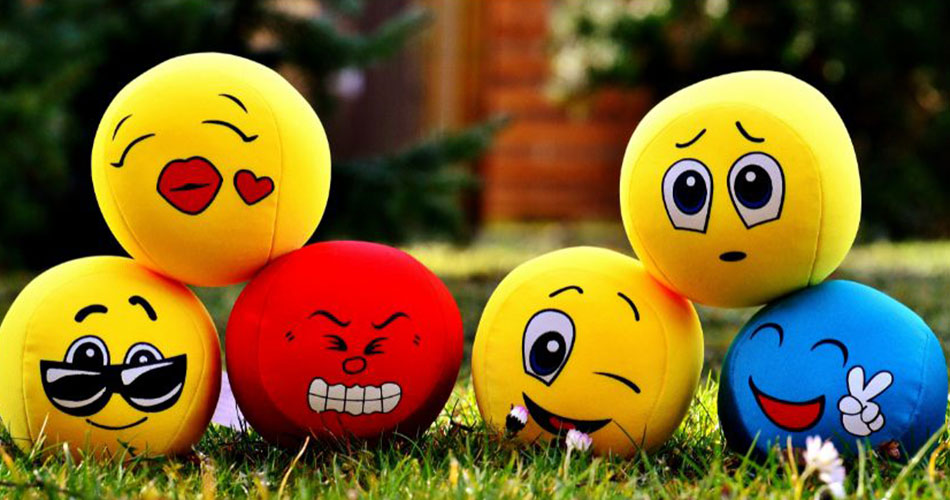The complexity of emotions.
It was pouring rain when I crashed my moped in Thailand. The dirt road was a muddy bog. I was frustrated, this was the second time I had fallen. I grunted as I pulled myself out from underneath the moped. My sister exclaimed “You gotta stay positive Deb! You can’t give up!” “I’m not giving up, I just need a moment for my frustration” I said as I plopped myself down on the side of the road.
Are my emotions bad or negative?
After that, I began to think about emotions and how easy it is to label them as positive or negative. And how much this judgement impacts how we experience them at the moment. When our emotion is labelled as negative we somehow feel bad. The problem is that life is a multitude of experiences and it’s not all positive, but we feel guilty when we aren’t positive.
From this judgement, we see certain emotional experiences as being negative or pessimistic. But sometimes life sucks and it feels better when we can acknowledge that. Had my sister just replied with ‘that sucks’ and given space for a bit of frustration, it would have quickly moved into laughter because I was dripping head to toe in mud and it was funny! Instead it was this tense uncomfortable exchange that left me feeling somehow shameful for being frustrated.
The problem begins with how we perceive emotions and what they mean to us. My sister saw my frustration as negative and for her it meant that I was giving up. Where I perceived my frustration as temporary, it didn’t mean anything, and I trusted that it would pass when given a moment.
The experience of emotion is unique to each person.
Yes, we all experience the same emotions, but over time those same emotions have cultivated different meanings. Meanings that have been influenced by our families, how we were raised, societal practices, our memories, and our culture. This impacts how we move through or process emotions.
Emotions are all created equally. They are felt physically in the body, they reach a peak and then settle when given the space to flow. We are not that different from toddlers who need to settle their bodies after a temper tantrum. Toddlers need space, reassurance and comfort before they can transition into talking about what happened. This is because they are operating from their emotional brain. As adults we are still functioning from our emotional brain and still need comfort and soothing before we can access our rational brain.
Emotions do not define us, but they provide information that we need in that moment. This natural emotional process is interrupted when it is labelled and we run the risk of getting stuck in emotional defences like shame, anxiety, anger and shutdown.
It doesn’t matter what the emotion is, how we perceive it impacts our experience of it. I have had many clients that perceive happiness as ‘the calm before the storm’ and as a result feel terrified of happiness. They resist feeling happy. Others can feel more comfortable with sadness and as a result they easily flow through sadness feeling a greater sense of wholeness after crying. How about those of us that identify feeling angry as being an angry person? So rather than allowing anger to help us understand what we value or believe in, we work really hard to avoid it out of fear of being that type of person.
All emotions have value.
When we are allowed to feel anger we are empowered. Most positive change in our societies started with feeling anger. The Black Lives Matter movement is just one example of how anger and outrage has led to questioning systemic racism and shifts in some institutions like police services. Sadness lets us know that we need to slow down and seek comfort. Feeling sadness helps us feel more connected in our relationships with others and with ourselves. Crying is a release and it should make us feel lighter. If you don’t feel release after crying, it’s likely because you’ve labelled crying as wrong. Instead of allowing yourself to feel sad, you’re feeling an uncomfortable mixture of sadness and shame. The labels we use can be subtle as ‘don’t worry’ or ‘don’t take things too seriously’ or being told we are too sensitive or taking things too personally.
So what do we do with emotions?
Be kind to yourself. We are often not fully aware of the judgments we have placed upon our emotions. Not many of us have questioned how we feel about what we feel. I know that my sister was not aware of how she perceived the emotional exchange that day. And she wasn’t aware of how the whole trajectory of that day could have been changed by not labelling my frustration and me as negative. All I needed was a moment to settle my body. Instead, I felt angry at my sister and we suffered through an uncomfortable, tense, silence for the remainder of the day. Something as simple as frustration at falling off a moped quickly turned into a silent fight between us.
So let’s start to explore this….
Be curious about the meanings that you attach to each emotion. Reflect on what you learned from your family about emotions. Did they show emotion? If so, what emotions were most common in your family? What was comfortable to express in your family and by whom? Did you grow up in a family that openly expressed anger/frustration because it was how you communicated? Or did you grow up in a family that avoided conflict and the expectation was to be nice to others?
Explore how your culture and society define emotion. It is not uncommon for society to value rational and logical thought, leaving us to believe that emotions are for those that are irrational or weak. Ask yourself: do I really believe that feeling sadness makes me weak?
What if we could show ourselves the same compassion, kindness, and tolerance we have for a small child who was struggling to manage their emotions? Compassion, put simply, is being with ourselves in a warm and loving way without judgement. Experiment using compassion and curiosity to intentionally turn to your emotions. Be aware of when you are experiencing judgement towards emotions as opposed to allowing yourself to feel the emotion without judgement. They are just emotions and are as temporary as the weather. Emotions are our constant companions, whether we like it or not. Life is easier when we have developed a comfortable relationship with them.




0 Comments